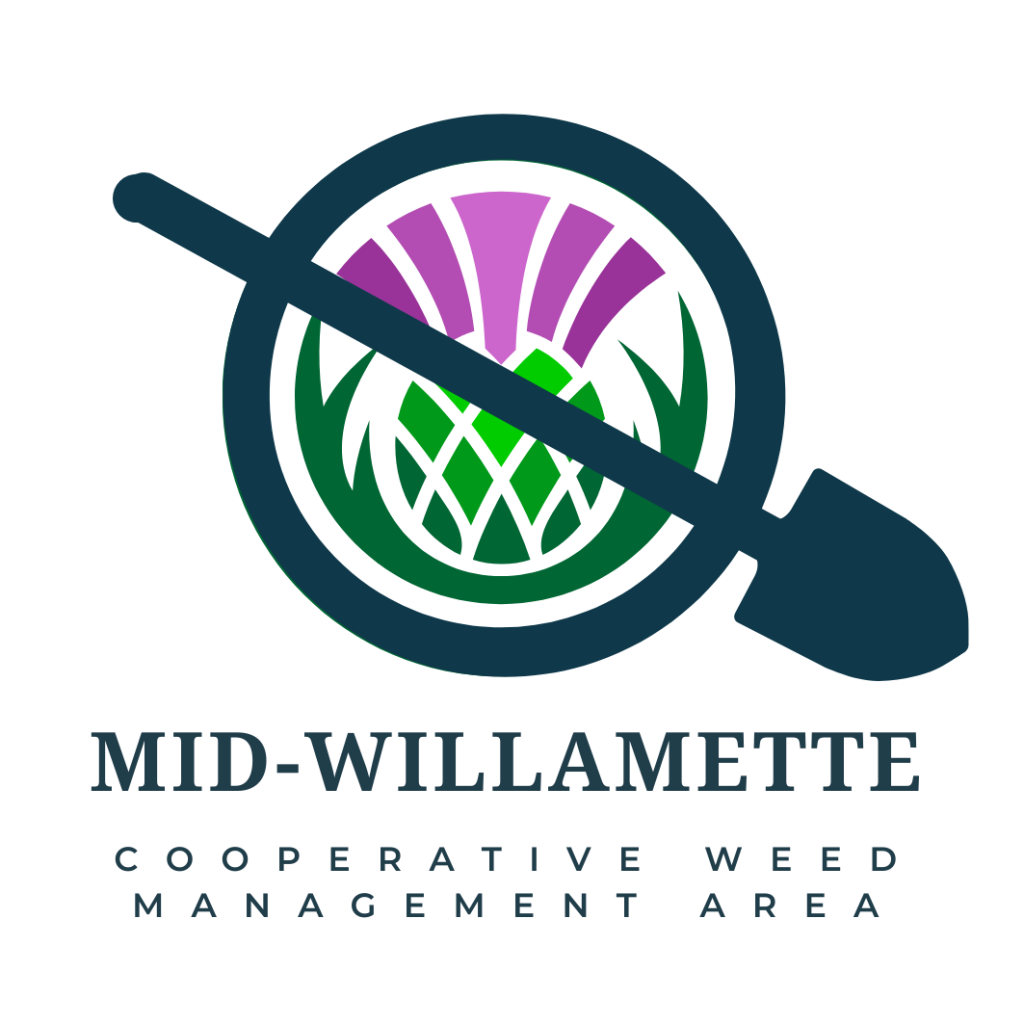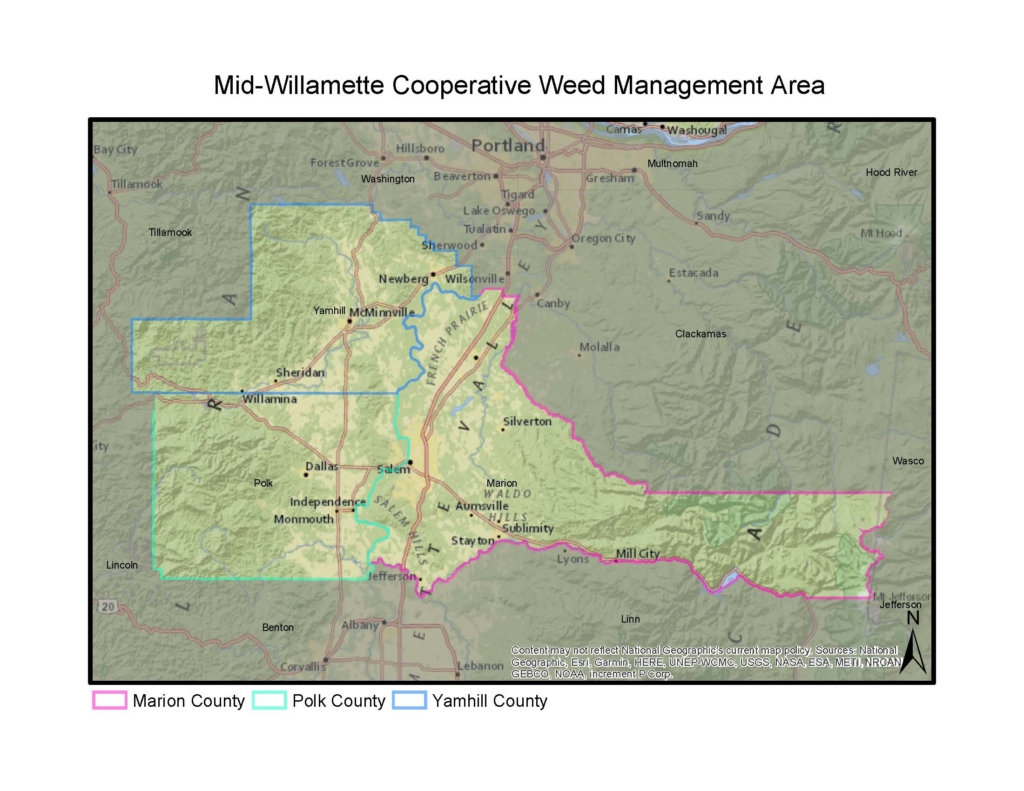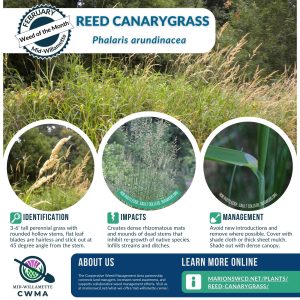
The Mid-Willamette Cooperative Weed Management Area (CWMA) is a partnership of federal, state, and local government agencies, tribes, individuals, and various interested groups that manage noxious weeds or invasive plants in the Mid-Willamette Valley.
Overview
After habitat loss, invasive species are the second greatest threat to biodiversity globally. Invasive plant infestations cause wildlife extinctions, negatively impact the health of humans, domestic animals, and wildlife, and limit the social and ecological benefits of natural areas. They result in degradation of water and soil quality, increased use of pesticides, and rising agricultural costs and crop losses.
Noxious weeds cause economic losses to Oregon of over $83.5 million annually including: rising production costs in agriculture, nursery, and forestry industries; growing maintenance costs for right-of-way, parks, natural areas, and landscapes; and increased need for research and monitoring. They also impact trade, tourism, and recreation. Because weeds do not recognize boundaries, collaboration and partnerships are essential for effective management.
The Mid-Willamette Cooperative Weed Management Area (CWMA) is a partnership of organizations, agencies, and non-profits dedicated to combating invasive weeds across the region. It exists to connect and educate land managers, increase awareness in the public, and support collaborative weed management efforts. The CWMA promotes invasive plant education, community outreach, weed inventory, data management, and weed prevention and control activities.
The goal of the Mid-Willamette CWMA is to prevent the introduction and control the spread of harmful invasive plants in the region by increasing public awareness, educating land managers, and facilitating cooperative management between organizations.
The Mid-Willamette CWMA includes 2,657 square miles of land delineated on a map by Yamhill, Marion, and Polk counties.

Mid-Willamette CWMA Partners
Resources

Weeds of the Month
Mid-Willamette CWMA distributes Weed of the Month flyers to increase awareness about invasive plants. The list includes widespread and not-yet-found species.

Invasive Plant Database
Use this filterable online database to search for and get to know the invasive plants of concern for the mid-Willamette Valley.
CWMA Email List
For people who want to join the email list for the MW CWMA.
Contact Us
If you’d like more information about the CWMA, contact Sarah Hamilton, Marion SWCD’s Native and Invasive Plant Specialist and the Coordinator of the Mid Willamette CWMA.

